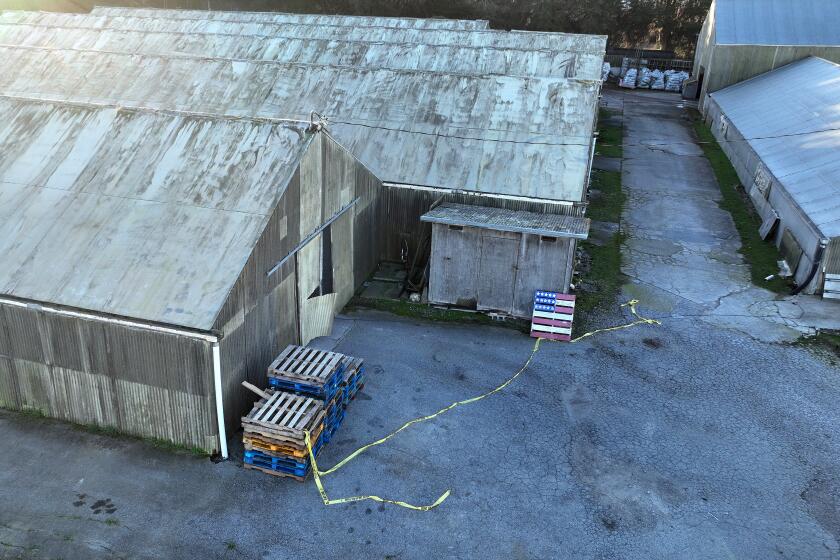Crime Knows No Socioeconomic Limits : Tay Slaying Illustrates Need for Positive Direction, Even Among Privileged Youths
How can things that are going so right for some young people end up going so wrong? The sentencing this month to life in prison without parole of Robert Chan, 19, who had been a brilliant student at Sunny Hills High School in Fullerton, ended a disturbing chapter in the murder of Stuart A. Tay of Orange on New Year’s Eve in 1992.
Perhaps young people who have everything going for them, and equally important, their parents, will have some lasting lessons to contemplate. The judge’s remarks in the sentencing would suggest that is the case, and so would the stunning letter Chan wrote to the parents of his victim.
Chan was found guilty of masterminding Tay’s murder; he was one of five Orange County teen-agers convicted of the beating death. Two other defendants pleaded guilty and the other two were convicted of first-degree murder and await sentencing. During sentencing of Chan, Superior Court Judge Kathleen E. O’Leary said she could not reconcile the backgrounds of the youngsters with the robbery they contemplated of a Anaheim computer parts dealer. The plan later fell apart, according to prosecutors, and the judge said, “It is inexplicable to me that Mr. Chan, given the love and support of his family, and Mr. Tay, given the love and support of his family, would even come together to plan a residential robbery.” She went on, “I think this case is not only tragic for these families, but it’s also a tragedy for society. I think there are a lot of families and a lot of parents who are wondering how this could happen.”
Chan wrote the Tay family, “I shudder when I try to imagine how you must feel, I know your pain is infinitely worse. I know now, all too late, that not only have I destroyed one life, I have destroyed many.”
How do we get youngsters to assess the consequences of their actions before the fact, not after, especially those who are as privileged as these young men were? How is it possible for such youngsters to believe that violence is an option, and to have them make decisions that perhaps will ruin their lives? Generally, the young people we hear about today who give no thought to tomorrow come from a different world entirely, the world of gangs.
This case is a reminder that the need for positive direction for young people knows no socioeconomic boundaries, and why programs in personal ethics, such as were developed recently in the Irvine public school system, have broad application in a society in need of bolstering.
More to Read
Start your day right
Sign up for Essential California for news, features and recommendations from the L.A. Times and beyond in your inbox six days a week.
You may occasionally receive promotional content from the Los Angeles Times.






